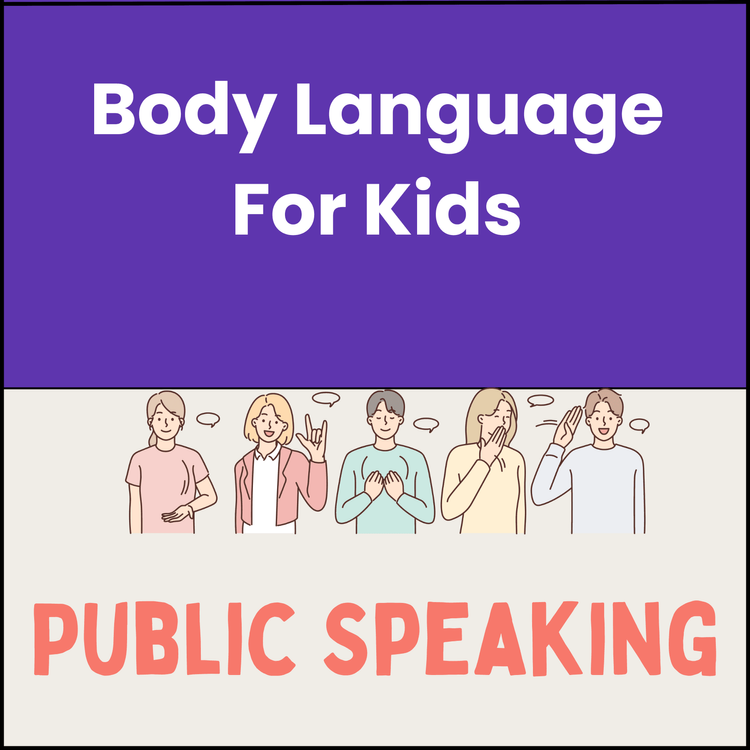What is Netiquette: Meaning, Rules, and Importance Explained

Table of Contents
- What is Netiquette?
- Why is Netiquette Important?
- Examples of Good Netiquette in Daily Life
- Netiquette for Students in Online Classes
- Netiquette in Social Media Communities
- Core Rules of Netiquette
- Types of Netiquette
- Common Mistakes to Avoid Online
- PlanetSpark: Building Communication and Online Etiquette Ski
- Conclusion
In today’s digital world, how we communicate online matters as much as how we speak in person. This is where netiquette, or internet etiquette, plays a vital role. It refers to the set of rules and good manners that guide our behavior on the internet, from writing emails and posting on social media to chatting in online classrooms or professional meetings.
As more people connect virtually for education, work, and social interaction, understanding and following netiquette has become more important than ever. It helps maintain respect, clarity, and professionalism in digital spaces. Whether you’re a student attending online classes, a professional sending work emails, or a social media user sharing opinions, good netiquette ensures your communication is polite, effective, and responsible.
What is Netiquette?
Netiquette is a combination of the words “network” and “etiquette,” meaning the proper and respectful way to behave while communicating online. It includes the unwritten rules that guide how people interact on the internet, whether through emails, chat groups, social media, or virtual classrooms.
In simple terms, netiquette means being polite, considerate, and thoughtful when using digital platforms. Just like good manners are important in face-to-face conversations, online manners help maintain respect and understanding in virtual spaces. For example, using a friendly tone in messages, avoiding rude comments, and respecting others’ privacy are all part of good netiquette.
Netiquette also plays an essential role in ensuring that digital communication remains positive and safe. It helps prevent misunderstandings, promotes healthy discussions, and encourages a sense of responsibility among internet users. In a world where most of our interactions happen online, practicing good netiquette is a sign of digital maturity and awareness.
Why is Netiquette Important?
Netiquette is important because it helps create a respectful, safe, and effective online environment. In today’s digital world, where millions of people communicate across different platforms daily, good online manners make a huge difference in how messages are received and relationships are built.
Practicing netiquette ensures that your words or actions do not unintentionally hurt or offend others. It encourages empathy, respect, and professionalism in digital communication. Whether you’re sending an email, participating in a group chat, or posting on social media, following netiquette helps you present yourself positively and thoughtfully.
For students, netiquette promotes better classroom behavior and teamwork during online learning. For professionals, it strengthens collaboration, reduces miscommunication, and builds credibility. On social media, it prevents conflicts and helps maintain a friendly digital community.
Overall, netiquette is essential for developing a positive digital identity, maintaining healthy online relationships, and ensuring that the internet remains a place of learning, sharing, and growth.

Examples of Good Netiquette in Daily Life
Practicing good netiquette in everyday online interactions helps maintain respect, clarity, and positive relationships. Simple actions like responding promptly to emails, addressing people politely, and avoiding offensive language are basic yet effective examples. When commenting on social media posts or forums, it’s important to stay on topic, acknowledge others’ opinions, and avoid personal attacks.
In professional settings, following netiquette includes using proper greetings, structuring emails clearly, and avoiding unnecessary all-caps or emojis. During virtual classes or meetings, good netiquette involves muting your microphone when not speaking, waiting your turn to talk, and actively listening to others. Even in casual chats, netiquette means being polite, clear, and considerate, ensuring your messages are understood without causing confusion or conflict.
By incorporating these habits into daily online interactions, users not only show respect for others but also build a positive digital reputation, foster healthy communication, and create safer online communities. Good netiquette in daily life makes the internet a friendlier and more productive place for everyone.
Netiquette for Students in Online Classes
Following proper netiquette in online classes helps students maintain a respectful, productive, and engaging virtual learning environment while developing essential digital skills.
Arrive on time for online classes and be prepared to participate.
Mute your microphone when not speaking to avoid background noise.
Ask questions politely to ensure effective communication with teachers and classmates.
Write clearly and respectfully in chat or discussion boards.
Avoid offensive language and respect differing opinions.
Share relevant resources and acknowledge classmates’ contributions.
Give credit for ideas and work shared by others.
Be mindful of video and audio settings during virtual sessions.
Dress appropriately and follow the online class guidelines.
Practicing these rules helps build digital communication skills, discipline, confidence, and a positive reputation among peers and educators.
Sign up for a free demo class and teach your child the essentials of netiquette and safe internet behavior.
Netiquette in Social Media Communities
Following proper netiquette on social media helps users engage respectfully, build a positive online presence, and maintain healthy digital communities.
Always respect differing opinions and avoid arguments or personal attacks.
Use polite and clear language in posts, comments, and messages.
Avoid oversharing personal information to protect privacy.
Do not post or share unverified or false information.
Give credit when sharing content created by others, such as images, quotes, or articles.
Avoid spamming with repetitive or promotional content.
Think carefully before posting, ensuring your content is appropriate and respectful.
Engage meaningfully by liking, commenting, or sharing content thoughtfully.
Report offensive or harmful content rather than responding aggressively.
Consistently following these rules helps maintain a safe, positive, and engaging social media community.
Core Rules of Netiquette
Good netiquette is built on respect, clarity, and responsibility. Following a few simple rules can make online communication more effective and pleasant for everyone involved. These rules apply across emails, chats, social media platforms, and virtual classrooms, helping users maintain a positive digital presence.
Here are some core rules of netiquette everyone should follow:
Respect Others’ Opinions: Always listen to different viewpoints without being rude or dismissive. Healthy discussions are encouraged, but arguments or insults are not.
Avoid Offensive Language: Never use harsh, abusive, or disrespectful words in online communication.
Be Clear and Concise: Keep your messages short, polite, and easy to understand to avoid confusion.
Don’t Spam: Avoid sending irrelevant messages, excessive promotions, or repetitive content.
Give Credit Where Due: Acknowledge the original creators when sharing quotes, images, or ideas online.
Protect Privacy: Do not share personal information or someone else’s details without permission.
Think Before You Post: Always review your message or comment before posting to ensure it’s respectful and appropriate.
Stay Honest and Kind: Maintain integrity in all online interactions and treat others the way you’d like to be treated.
Practicing these basic principles of netiquette helps build trust, prevent misunderstandings, and foster a positive online community.
Enhance your child’s communication, online etiquette, and presentation skills with PlanetSpark’s personalized learning programs.
Types of Netiquette
Netiquette can differ depending on the platform or situation in which you communicate. Each online space, whether it’s an email, social media, or a virtual classroom has its own set of unspoken rules. Understanding these types of netiquette helps you adapt your communication style appropriately while maintaining respect and professionalism.
Here are the main types of netiquette:
Email Netiquette: Write professional, polite, and well-structured emails. Use a clear subject line, address the recipient properly, and avoid typing in all caps. Always proofread before sending.
Social Media Netiquette: Interact respectfully by commenting thoughtfully, avoiding hate speech, and not oversharing personal information. Be mindful of what you post and how it may affect others.
Chat or Forum Netiquette: When participating in group discussions or online forums, stay on topic, use appropriate language, and listen to others’ opinions without interrupting.
Classroom Netiquette: In online learning environments, mute yourself when not speaking, respect the teacher and classmates, and avoid distractions during sessions.
Workplace Netiquette: Maintain professionalism in virtual meetings and emails. Be punctual, use polite language, and give full attention when others are speaking.
By understanding and applying the right type of netiquette in each situation, you can communicate more effectively, maintain credibility, and create a positive digital presence.
Common Mistakes to Avoid Online
Even with the best intentions, many people make mistakes online that can harm their digital reputation or cause misunderstandings. Being aware of these pitfalls helps you communicate respectfully and maintain positive relationships in virtual spaces.
Common mistakes to avoid include:
Oversharing Personal Information: Sharing too many personal details can compromise privacy and security.
Using All Caps: Typing in all capital letters is often perceived as shouting or being aggressive.
Ignoring Others’ Perspectives: Disrespecting differing opinions can create conflicts and reduce engagement.
Posting Without Verification: Sharing unverified information can spread misinformation and damage credibility.
Being Rude or Abusive: Negative comments, insults, or cyberbullying are never acceptable and can harm relationships.
Over-Promotion: Excessive self-promotion or spamming can annoy followers and reduce trust.
Inconsistency in Communication: Irregular or careless online behavior can confuse your audience and weaken your reputation.
Avoiding these mistakes ensures that your online presence is positive, responsible, and engaging. Practicing good netiquette consistently helps you communicate more effectively and fosters a safer and more respectful digital community.

PlanetSpark: Building Communication and Online Etiquette Skills
At PlanetSpark, we help children and students develop essential skills that go beyond academics, including effective communication, digital responsibility, and online etiquette. Understanding netiquette from an early age ensures that young learners interact respectfully and confidently in digital spaces.
Personalized Learning: PlanetSpark offers tailored lessons that focus on writing, speaking, and online communication skills, helping students express themselves clearly while following proper digital manners.
Interactive Sessions: Through engaging live classes, children practice email writing, online discussions, and virtual presentations, learning to communicate politely and effectively.
Practical Experience: Students participate in role-plays, storytelling exercises, and group activities that teach the importance of respect, clarity, and empathy in online interactions.
Digital Responsibility: PlanetSpark emphasizes safe and responsible internet usage, helping students understand the importance of privacy, verification of information, and respectful engagement on social platforms.
Conclusion
Netiquette is an essential part of modern digital communication, helping individuals interact respectfully, responsibly, and effectively online. Whether in emails, social media, virtual classrooms, or professional settings, following proper netiquette ensures clarity, prevents misunderstandings, and fosters positive relationships.
Practicing netiquette builds a strong digital reputation, encourages collaboration, and promotes safe and healthy online communities. For students, it enhances learning experiences and communication skills. For professionals, it strengthens credibility and teamwork. By understanding and applying the rules of netiquette consistently, everyone can contribute to a respectful, productive, and engaging digital environment.
Frequently Asked Questions
Netiquette refers to the rules and guidelines for polite, respectful, and responsible behavior while communicating online. It ensures positive and effective digital interactions.
Netiquette helps prevent misunderstandings, promotes respect, builds a positive online reputation, and creates safe and healthy digital communities for everyone.
Basic rules include being respectful, avoiding offensive language, thinking before posting, giving credit for others’ work, and protecting privacy while interacting online.
Students can practice netiquette by arriving on time, muting microphones when not speaking, writing politely in chats, respecting classmates’ opinions, and following class guidelines.
Social media netiquette involves engaging respectfully on platforms, avoiding spamming, sharing verified content, giving credit for others’ work, and maintaining a positive digital presence.
For professionals, netiquette improves communication in emails, virtual meetings, and messaging apps, strengthens credibility, fosters collaboration, and prevents conflicts or misunderstandings.
Download Free Worksheets
Personalized Communication Report
Record a video to get a AI generated personalized communication report for your child

Hi There, want to try these
tips for your child with
LIVE with our expert coach?
Let's check your child's
English fluency

